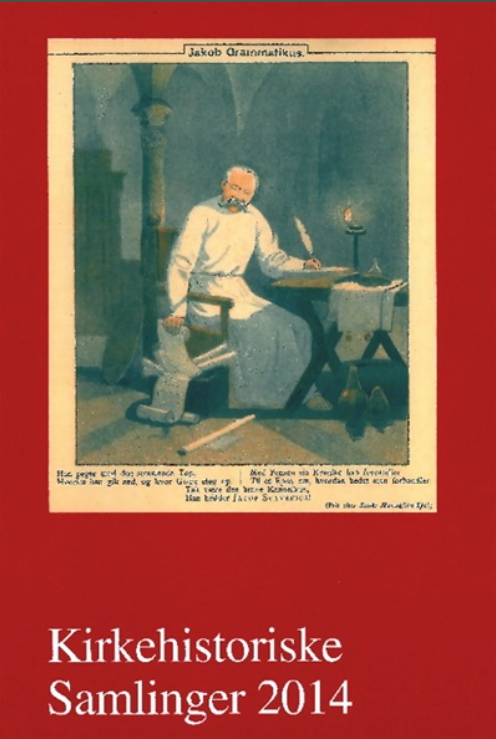Publiceret 15.12.2014
Citation/Eksport
Copyright (c) 2014 Tidsskriftet Kirkehistoriske Samlinger

Dette værk er under følgende licens Creative Commons Navngivelse – Ingen bearbejdelser (by-nd).
Resumé
Da ministeren for kirke- og undervisningsvæsenet, Jacob Scavenius, i 1887 blev involveret i en prostitutionsskandale vaklede den sociale orden i samfundet. Borgerskabet hyldede ægteskabet samtidig med, at mange lukkede øjnene for den voksende prostitution. Magthaverne var stillet over for et dilemma: På den ene side var det nødvendigt at forsvare den kristne moral og ægteskabet mod brandesianisme og fritænkeri. På den anden side var det nødvendigt at beskytte offentlige personers privatliv mod at blive brugt som våben i en politisk kamp. Denne artikel diskuterer sagens betydning for Scavenius’ politiske karriere.
Summary
The Scavenius Affair 1887-1891. The Minister of Ecclesiastical Affairs between moral and politics
It caused a great public scandal in 1887 when the Danish Minister of Ecclesiastical Affairs and Education, the conservative Jacob Frederik Scavenius, was accused of paying a visit to a prostitute in Copenhagen. Bishops and several clergymen believed that the minister in his private life was under an obligation to serve as a model of good Christian moral behavior. The minister had to refute the accusations in public or be dismissed, they argued. Scavenius, on the other hand, argued that he was no servant of the church. His office was secular and he was no more than any other civil servant obliged to act as a moral example. He had committed no crime and the accusations were related to a private matter, not a public one. The political opposition, the liberal political party, as well as the public opinion in general took side with Scavenius in defending the distinction between the private and the public sphere. Scavenius successfully took his accuser, a religious businessman of Copenhagen, to court for defamatory statements.
Nevertheless, in late 1890 the scandal once more burst in to flames when newspapers revealed that Scavenius during the trial paid central witnesses to disappear for many months, only to reappear when the trial had cleared Scavenius in public. The leading members of the conservative government and the government press defended the removal of witnesses in a political infected trial. The lawyer of the defendant, a liberal politician, used doubtful witnesses only to throw mud at Scavenius.
Still Scavenius stayed in office, but I the summer of 1891 he was suddenly dismissed by the head of government, J.B.S. Estrup, on the
ground that Scavenius no longer complied with the political agenda of the government. Most scholars tend to emphasize the significance of a political compromise between the conservative government and a faction of moderate liberals in the spring of 1891. Presumably, Scavenius, a conservative hardliner, was a fierce opponent of compromising with liberals and had to be removed from office. However, historians seem to neglect the fact that Scavenius actually supported a political compromise with liberals prior to the summer of 1891. And no liberal politician ever insisted on the removal of Scavenius. Actually, historians have been rather uncritical in their interpretation of the official statement of Estrup as well as memoirs of leading liberal politicians. Estrup, no sincere advocate of political compromise himself, had a clear interest in the construction of this particular political reason for dismissing Scavenius in order to postpone his own political status as leader of the government.
This article argues that Scavenius was discharged because of the moral scandal of 1887 and the subsequent scandalous trial. Even though Scavenius according to legal experts did not violate any law, Estrup was forced to dismiss him because of growing aversion against Scavenius among conservative politicians of parliament and a united clergy. Actually, Estrup in the end had to give in to the demand for a »pure« and morally unchallengeable Minister of Ecclasiastical Affairs. But if the private moral was proclaimed ground for dismissal, the government would cross the line between the private life and the political/public life. Then, actually, all politicians in the future would risk a public inquisition in there private life. The government as well as the opposition shared a common interest in the protection of the private sphere. For that reason, a political »official cause« for the fall of Scavenius was much more convenient for all sides of parliament. So the strategy was twofold; a specific dismissal of Scavenius on moral and private grounds without generally going beyond the boundary between the private and the political/public sphere.

